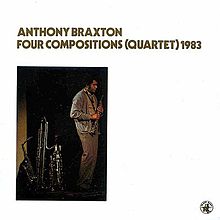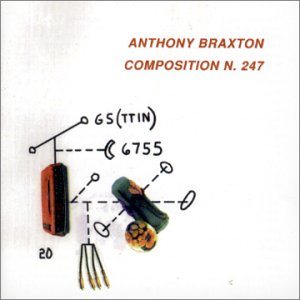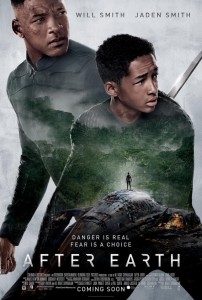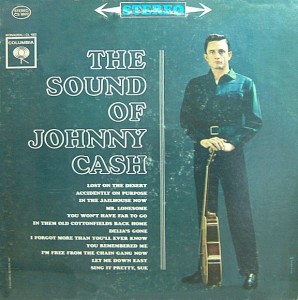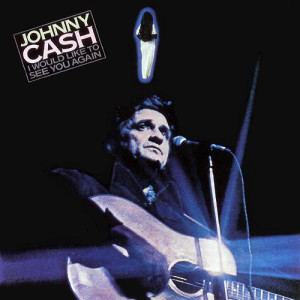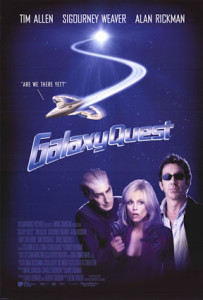Link to an article by Peter Frase:
Anthony Braxton – Four Compositions (Quartet) 1983
Anthony Braxton – Four Compositions (Quartet) 1983 Black Saint BSR 0066 (1983)
A good one for sure, but overshadowed by what came before and after. This is a transitional album. George Lewis is still around, but Braxton is essentially putting together a new quartet (Marilyn Crispell would soon replace Lewis). New ideas are surfacing, but they aren’t quite fully developed yet. This is a man who recorded and released music so prolifically that, for better or worse, you get to hear him evolve. “Composition No. 69 Q” is the highlight here; it kind of looks back to Braxton’s 70s work.
Anthony Braxton – Composition N. 247
Anthony Braxton – Composition N. 247 Leo CD LR 306 (2001)
A pretty challenging extended piece from Braxton and co. I like it, though it’s certainly not a casual listen and I don’t listen to it that often. It’s pretty dense, even relative to other Braxton releases, which says a lot. This will probably turn off many listeners. It features a lot of circular breathing and even includes bagpipes — to excellent effect. It’s yet another entry into Braxton’s “Ghost Trance Music” series. This comes more from the realm of modern composition than jazz, although it mixes elements of both. As composition, it intrigues me most because of what it suggests for music that extends continuously without any real fixed reference points to distinguish beginning, middle, end, or anything else. I also like the texture of the bagpipes, which you don’t often hear in this kind of setting.
Christian Parenti – The Making of the American Police State
Link to an article by Christian Parenti:
Ian Urbina – A Renegade Trawler, Hunted for 10,000 Miles by Vigilantes
Link to an article by Ian Urbina:
“A Renegade Trawler, Hunted for 10,000 Miles by Vigilantes”
Bonus link: “Kobayashi and the Class Struggle”
After Earth
After Earth (2013)
Columbia Pictures
Director: M. Night Shyamalan
Main Cast: Jaden Smith, Will Smith
Here is a sci-fi film with an interesting core premise, burdened by all the usual plot holes of a typical M. Night Shyamalan feature. Humanity makes the Earth’s environment essentially uninhabitable, and the planet’s population moves to a new planet called Nova Prime. Some other alien species tries to remove humans from Nova Prime (for reasons not explained in the film) by attacking them with genetically engineered monsters called Ursa, which relentlessly attack humans by detecting pheromones given off when humans are frightened. Cypher (Will Smith) is a general in the Nova Prime military, and his son Kitai (Jaden Smith) wants to follow in his father’s footsteps. However, Kitai is troubled by having seen his sister killed by an Ursa. So, father and son go on a space voyage and an “unexpected” asteroid belt causes the spacecraft to crash land on a planet that turns out to be Earth. There were only two survivors. To raise a rescue beacon, they must reach the tail section of the craft that landed some number of miles away from where Cypher and Kitai landed. But Cypher has broken his legs, so Kitai must make the journal alone. And an Ursa that was being transported in the craft has survived the crash too, and gotten loose.
The story line is fairly typical “son must prove himself to a military father” one. Those plot holes? Well, here are a few. How would an asteroid be unknown and undetected, so close to the human home world? When Cypher injures his leg, why is he unable to apply a tourniquet, a technology known for millennia? If the Ursa are practically blind except for their pheromone sense, how are they able to walk about without crashing into things? And are they also mostly deaf? Why must the Ursa be fought practically hand-to-hand, rather than using tanks, missiles, robots, and the like? And with all the new technologies, it strains credibility that the characters are so unfamiliar with it that they are inclined to offer explanations (for the benefit of the film’s audience).
Will Smith’s acting is wooden. He was always better in comedic roles. Jaden Smith is terrible, and devoid of acting ability. So why watch this film? There are great special effects. If you can set aside the bizarre forgetfulness when it comes to “ancient” technologies like tourniquets, there are a few interesting concepts, like flexible and holographic computers.
What makes this movie decent, in spite of its flaws, is the psychological basis for the main plot point. Kitai must overcome his fear of Ursas to accomplish “ghosting”, by overcoming fear and avoiding the release of pheromones to pass by them as if invisible. The very notion of “ghosting” is ridiculous. But the idea that you have free will as to how you subjectivize objective experience is a key concept of psychology:
“[M]an is not simply a product of objective circumstances. We all have this margin of freedom in deciding how we subjectivize these objective circumstances, which will of course determine us.”
Kitai has to decide whether in response to the very real and objective threat of the Ursa whether he subjectivizes that circumstance through fear, or another way. In one very anthropomorphic scene, too, Kitai is saved by a giant eagle who chooses to protect him from severe cold that occurs every day, who manifests the same phenomenon. She chooses to protect Kitai after loosing all her babies in an attack by jaguars or some such mutated large cats. A “protector of the weak” is how she wanted to be seen by others. So the basic message of this film is a defensible one.
Lichtenberg on Critics
“The critics instruct us to stay close to nature, and authors read this advice; but they always think it safer to stay close to authors who have stayed close to nature.”
Johnny Cash – The Sound of Johnny Cash
Johnny Cash – The Sound of Johnny Cash Columbia CS 8602 (1962)
After a few albums that tried to test the limits of Johnny Cash’s stylistic range and abilities — from the concept album Ride This Train to the retro country album Now There Was a Song! Memories From the Past to a second, drier gospel album Hymns From the Heart — he returns to the established folk-country sound of The Fabulous Johnny Cash and Songs of Our Soil with The Sound of Johnny Cash. While he is not trying to break any new ground, and there is not any standout single included, this remains one of his better early/middle period albums. It is a pleasantly mellow and likeable album that aligns the material and performances with Cash’s disposition as a singer raised on a farm but with some years of national touring behind him. He sort of honors his roots, yet also aims for something that has a touch of urban sophistication that stretches beyond those roots. By 1962 Cash’s voice had changed a bit, deepening and coarsening as a result of a steady touring performance schedule that left him with problems of chronic hoarseness. Those troubles with his vocal chords don’t surface on this album, but rather add a layer of complexity — turmoil even — just under the surface.
“In them Old Cottonfields Back Home” is a traditional folk song, and it just happens to ring true to Cash’s own upbringing on an Arkansas cotton farm. “Mr. Lonesome” with its vibraphone accompaniment and Cash singing at a lethargic pace, going into his lower vocal register, with light backing vocals, is pitch perfect for the album. Halfway between a smooth pop romance song and country heartbreak weeper it fits the hybridized city/country style that Cash had mastered. Then there is his first recording of the grim first-person tale “Delia’s Gone” (revived decades later with great success on American Recordings):
“First time I shot her
Shot her in the side
Hard to watch her suffer
But with the second shot she died”
With that song Cash was sticking to his fascination with murder and the dark side of life. A star of his stature might have been tempted to cast those interests aside and go exclusively with lighter fare — like Elvis around this time. Johnny Cash never did what might be expected, though.
Guitarist Luther Perkins is a crucial presence. As the music pushes toward urban sophistication, Perkins’ iconic boom-chicka-boom guitar picking is this primitive ballast that refuses to dissolve into the airy, consonant vocal harmonies. Yet that guitar sound is also an ideal foil for Cash’s vocal phrasing, allowing Cash’s singing to occupy a middle ground that moves confidently into the era of post-WWII prosperity without forgetting the grit, hard work and determination of a rural childhood. Cash’s background is honored while still being compartmentalized as a stepping stone to a role as an musical ambassador of sorts — most of Cash’s political views fit into the left-ish end of New Deal programs that accompanied the post-war boom.
Johnny Cash – I Would Like to See You Again
Johnny Cash – I Would Like to See You Again Columbia KC 35313 (1978)
In a relative sense at least, I Would Like to See You Again is one choice for Johnny Cash’s best album from the period that ran from the late 1970s through entire 1980s — only the unusual and slightly rough-hewn concept album The Rambler comes close, but that one puts theatrical elements in place of proper songs in a way that makes it less suited to regular listening. From the odd album cover, to the generally lackluster quality of his albums of this time period, this album doesn’t seem like it would have much to offer. Add to that the fact that Cash compilations tend to include the least interesting songs on it, and maybe it is not too surprising that this is often overlooked entirely. By no means is this a top tier Cash album. It still plays well all the way through — helped, perhaps, by being a meager 32 odd minutes in length. There is an amiable, mellow tone to most of the songs, with a hint of weariness and nostalgia. Cash’s voice is unburdened by overbearing fads and the band plays supportively. Pianist Earl Poole Ball, a veteran who played with Buck Owens and plenty of other country legends, was a huge asset to Cash’s band. He (with the other session pianists) plays just enough to change the pace without overdoing it. The guitarists add some politely sly licks on an electric guitar to further inject some virility.
The songs are nice. They suit Cash in middle age. One of the best is “Abner Brown.” Cash wrote the song himself. As a character portrait, it was a familiar format for him (e.g., “Cisco Clifton’s Fillin’ Station”). It is a tale of a small town drunk known from childhood, admired and celebrated by the narrator for his good nature. Others only tolerated Abner Brown, but Cash’s song celebrates him as a friend and a salt of earth type (in the full biblical meaning of the phrase drawn from the Sermon on the Mount). The one song that does seem out of character, with its heavy (right-wing) rural populism, is “After Taxes” (not written by Cash). But the album opens strong with the title track, “Lately,” and “I Wish I Was Crazy Again.” “I Don’t Think I Could Take You Back Again” might be the most effective performance.
Few will name this as a career favorite from Cash, but it is a good one to play to accompany a reunion of unselfconscious friends or any other gathering of effortlessly familiar, kindred spirits. It has a slight “bro” quality perhaps; it isn’t intrusive though.
Galaxy Quest
Galaxy Quest (1999)
Dreamworks
Director: Dean Parisot
Main Cast: Tim Allen, Sigourney Weaver, Alan Rickman, Justin Long
Basically a remake of ¡Three Amigos! set in outer space like Star Trek. Like Amigos, this is pretty funny.

